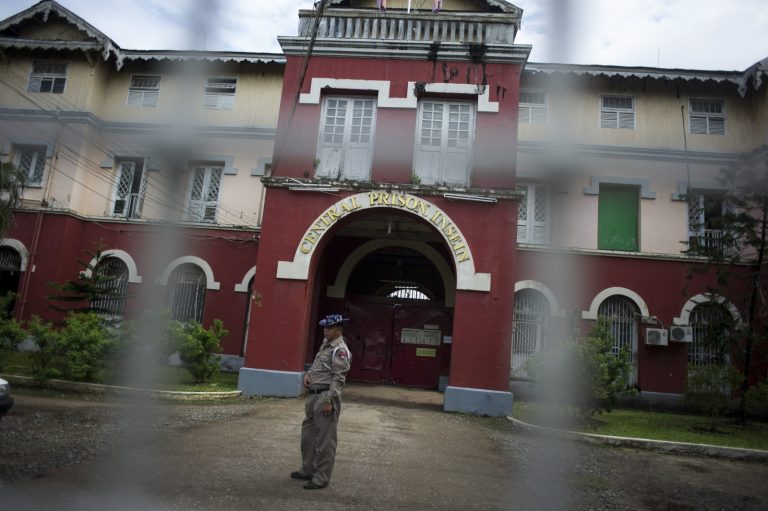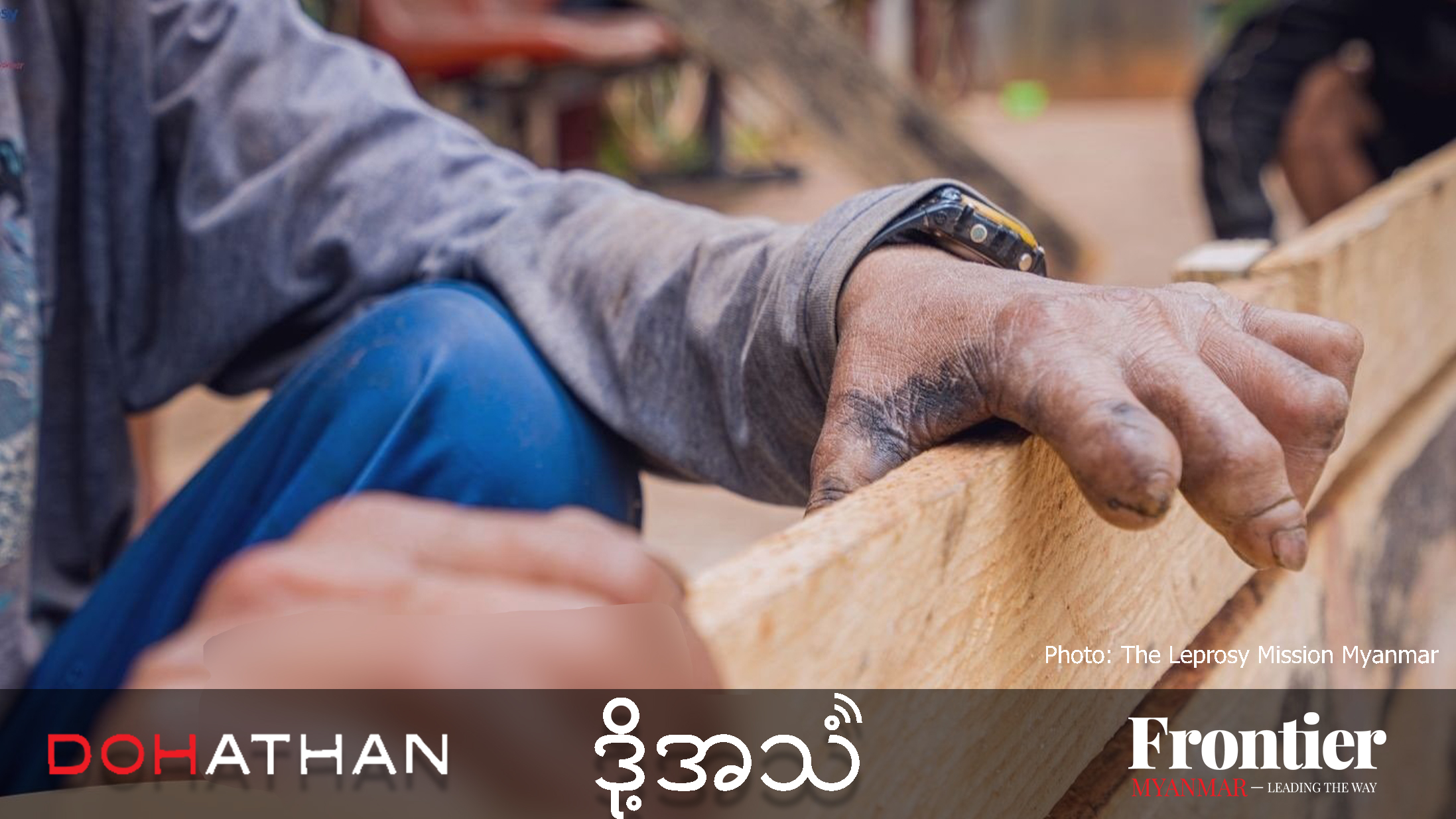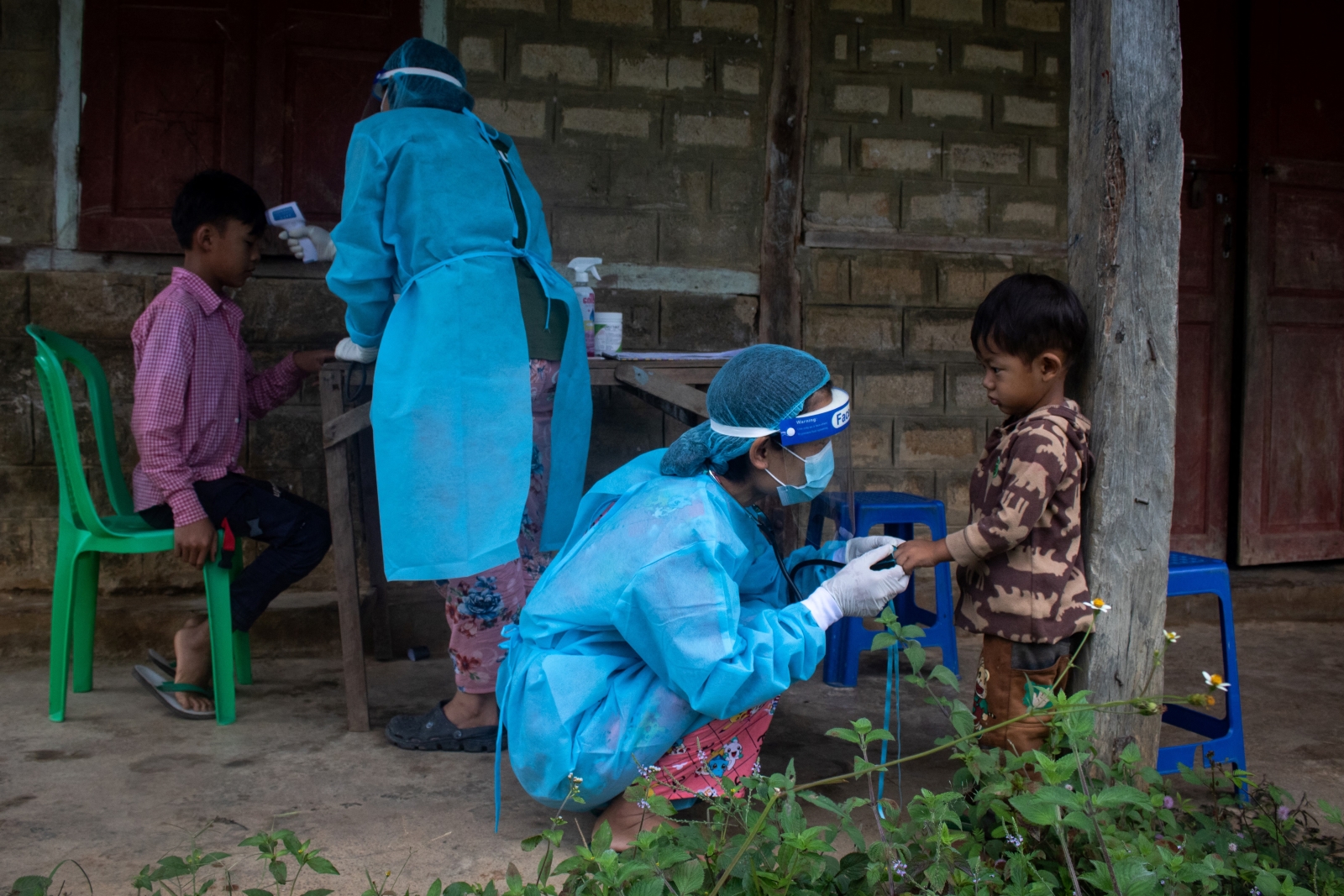The public healthcare collapse and economic crisis have compounded barriers to accessing reproductive healthcare in Myanmar, already a challenge due to social stigma and a lack of education.
By RACHEL MOON | FRONTIER
Before the coup, Daw Khin Myo, a mother of four living in Yangon’s working class East Hlaing Tharyar Township, received injections of Depo-Provera every three months to prevent unwanted pregnancy.
But the last few times she went to the state-run clinic, she left frustrated and empty-handed.
“Most of the time, they’d tell me that there was no injection available and that I should come back the next day. If they had the injection ready, the nurses asked if I had K3,000. They said it is a donation. But if I don’t donate, I won’t get an injection,” she said, adding that this wasn’t the case before the military seized power in February 2021.
Khin Myo said that, while annoying, the K3,000 fee – roughly US$1 – wasn’t a real barrier, but the lack of readily available supplies was.
“I run a grocery shop at my house, and I also have to do household chores and take care of my children. My husband has to go work at construction sites every day. To go to the clinic, I had to close the shop and ask the neighbours to watch my children. I can’t go to the clinic every day just to ask them if they have the medicine. So I stopped going there,” she said.
Hundreds of thousands of civil servants went on strike in protest of the coup, many from the public health sector, while the regime cracked down on parallel health services. The subsequent public healthcare crisis has affected all sectors – and reproductive health is no exception.
Ma Yee Oo, also from East Hlaing Tharyar, said that there is a free state-run clinic around eight kilometres from her hostel, which takes her about an hour to reach by bus. She contacted the clinic hoping to get an implant device that can prevent pregnancy for five years.
“I had to come on the day they said. It was on weekday, so I had to take leave from work. When I arrived, there were many women like me already there, so I had to wait for hours. After I consulted with the doctor, I did a blood test, but I didn’t get the implant that day. They gave me another appointment the next week for the implant,” Yee Oo explained.
However, the garment factory where she works wouldn’t allow her to take leave two weeks in a row.
“It’s just not convenient for factory workers like us who only have days off on Sunday. And it’s hard to get an appointment on our day off because there are many people trying,” she said.
Some international and domestic NGOs are trying to plug the gap, but are overwhelmed by the level of need. An office staffer at a clinic run by a reproductive healthcare INGO said their organisation has five healthcare centres in Yangon, but only two provide services free of charge.
“We can only provide free healthcare at those two clinics that are supported by donors. If there were donors for the other clinics, we would provide free care there too. We also have to close the clinics sometimes if there’s a funding shortage,” she said.
Daw Aye Mya*, a mother of four from Shwepyithar Township, went to a free clinic run by the Tun Foundation charity one month ago to get a device to prevent pregnancies. But when she arrived, she consulted with a medical officer and was put on a waiting list.
“They said that there is a waiting list to implant the device, and I have to wait at least one month and a half. They said they will inform me by phone when my time comes. In the meantime, they injected me with Depo,” she said.

The poor suffer more
There are four birth control methods widely used in Myanmar – taking daily pills, receiving an injection every three months, implanting a contraceptive device under the skin, and inserting the Intrauterine Contraceptive Device into the uterus.
Dr Soe Nandar*, a former specialist at the Yangon Central Women’s Hospital, who joined the Civil Disobedience Movement strike after the coup, said poorer women are caught between barriers of price and convenience. Implants and IUCDs can prevent pregnancy for three to 10 years, but are significantly more expensive and require more time.
“While they can buy one month’s worth of pills for K1,500, and one injection dose for around K10,000 at the private clinic, the IUCD and Implant can cost K30,000-K100,000 with many steps like taking a blood test first. So, the women from poor communities might not be able to afford these methods,” she told Frontier.
According to data from Track20, which works on family planning in the world’s poorest countries, 57.1 percent of married women in Myanmar, and 33.5pc of all women, were using modern contraceptives last year. Among them, 53.8pc used injections, 26.7pc took pills and only 7.4pc used IUCD or implants.
Sources said the price of most contraceptives has doubled since the coup.
Ma Chan Myae, a mother of three, said that her family can barely afford pills, let alone the more expensive contraceptive methods, struggling to make around K8,000 per day selling drinking water on the roadside in Yangon.
“I don’t want to get pregnant anymore, not even accidentally, but we don’t have the money for contraceptives at the moment. We’re struggling to cover our rent, and to feed five mouths with our income,” she said.
The owner of a pharmacy in East Hlaing Tharyar told Frontier that it costs at least K10,000 to get an injection at a private clinic, but it would only cost K3,000 to purchase the medicine, syringe and needle at the store.
“I’ve noticed that we’re selling more Depo injections to individuals lately,” he said.
Dr Soe Nandar said that it’s possible for women to inject themselves, but they should still consult with medical experts first, because every method has its pros and cons and not all are suitable for all women.
“In order to know which method would be best for her, a patient should consult first with a nurse or a doctor. Also, they need to know some things before injecting. First, they have to do a pregnancy test and only use the injection if they’re sure she’s not pregnant. After the injection, she must avoid sex for the first week, or use condoms. If not, she could still get pregnant,” she said.
Naw Susanna Hla Hla Soe, minister for women’s affairs at the National Unity Government, a parallel cabinet appointed by elected lawmakers deposed in the coup, said women are losing their basic healthcare rights under the military regime.
“It will lead to negative effects like unsafe abortions and gender-based violence,” she said, explaining that women can be abused by their husbands for unwanted pregnancies due to additional economic stress.
Ma Ei Thandar, spokesperson for Women Alliance Burma, said that for the families that can’t even afford contraception, having an unplanned child can be disastrous.
“It’s already harder for people to survive due to high commodity prices and unemployment. They can’t afford family planning because they don’t have money, so they give birth again and again. With more and more mouths to feed, their poverty deepens and they are stuck in a cycle,” she said.
The problems are compounded for those displaced by conflict, whose numbers have surged in the aftermath of the coup.
An official from the United Nations Fund for Population Activities told Frontier that out of 18.6 million people in need of humanitarian assistance this year, 52 percent are female, with over 5 million women of reproductive age requiring assistance. UNFPA aims to target 400,000 of these women with assistance in 2024.
“In 2023, UNFPA allocated $750,000 for provision of family planning commodities, ensuring value for money in reproductive health services,” the UNFPA official said on the condition of anonymity.
However, he admitted that the agency faced “difficulties in importing family planning commodities due to regulatory restrictions, transportation challenges and access issues for clients amidst armed conflicts”.
Susanna Hla Hla Soe said her ministry is working to provide contraceptives to camps for internally displaced people in areas under resistance control, but couldn’t give a figure for the number of people receiving care.

Education and stigma
While the collapse in public healthcare has exacerbated the problem, a lack of education and social stigma has long contributed to lower rates of contraceptive use in Myanmar, even for women who hope to avoid pregnancy. Some don’t understand the instructions, are wary of potential side effects, or think contraceptives will leave them permanently infertile.
“I married my husband just before I turned 20, and I got pregnant for the first time just after we were married. I gave birth to all of my children at home with a lat thel [an unlicensed midwife] in the ward who assists child births, because we had no money to go to the hospital,” said Chan Myae, speaking to Frontier from under an overpass in Mayangone Township.
She sat cross-legged on bare concrete, using her knees to cradle her youngest daughter, a four-month-old baby girl, while breastfeeding her. Her hands were busy putting bottles of purified drinking water into a small cooler with ice, while her two young boys played nearby. When the nearby traffic light turned green, her husband returned from the roadside, grabbing fresh bottles and running back to the road as the light turned red again to sell refreshments to the passengers in the stalled cars.
Lat thel like the one who assisted Chan Myae typically have no formal medical training, but offer their services in poor communities for little pay. After the birth of her second son, Chan Myae tried taking contraceptive pills in 2022 at the suggestion of a lat thel, buying a month’s worth at a pharmacy for around K1,000. But she didn’t understand the instructions and was often so exhausted from scraping a living that she’d forget to take them.
“I bought it from a pharmacy, and they didn’t explain me how to take it. I thought that it was okay if I just took a pill every day. But after a few days, I noticed there were [foreign] numbers on the cards. When I asked a neighbour, she told me I needed to take them in a particular order. It was complicated,” she said.
Others, like Daw Mya Khin, a 45-year-old with seven children in East Hlaing Tharyar, said they have never used medical contraceptives, instead relying on more traditional methods.
“I spent my youth mostly bearing children,” she said. “I didn’t know much about contraceptives and their effects. Many people urged me to get an injection, but I was afraid. They said after using the contraceptives I wouldn’t menstruate anymore, which sounded like a bad thing.”
Social stigma plays a big role too, particularly for unmarried women who don’t want anybody to know they are having sex. The pharmacy owner said many women who buy contraceptives from his store claim they are purchasing them for a relative and seem too embarrassed to ask questions about how to use them or what their side effects might be.
“Most of them don’t even look the seller in the face,” he said. “They shouldn’t feel any shame, and should ask the seller anything they need to know. But some of them won’t even come in if they see the seller is male. They just turn around and leave.”
Ma Mya Thet San*, a 27-year-old from North Dagon Township, said in the five years she’s been dating her boyfriend, she’s largely gone without contraceptives because she’s afraid of her family finding them and is ashamed to buy them at a shop.
“I live with my family. If I take the pills, surely one day I’ll be caught by my mother or someone else. I argue with my boyfriend sometimes because he wants me to use contraceptives. He said he can go and buy them instead of me, but I’m just so scared someone will find out I had sex before marriage,” she said.
Daw San San Myint, who runs an orphanage in Yangon’s Dala Township, told Frontier they’re seeing more and more parents abandoning their children, with eight infants left at the centre in recent months.
“If education and access to medicine for family planning were more available, it could significantly reduce the number of abandoned children,” she said. “But now the rate is going up badly.”
“The worst thing of all is when children don’t get love,” said Susanna Hla Hla Soe. “Lack of love can affect mental health and cause long-term damage.”
*indicates the use of a pseudonym for security reasons







